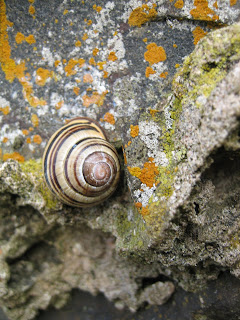 Societal unsustainability: part one
Societal unsustainability: part one
The background for my project is the increasingly widespread perception of the unsustainability of the present order of industrial society. This belief is based on a wide variety of factors and takes a variety of forms, but uniting them all is the judgement that contemporary industrial society is undermining the material conditions of possibility for its own existence. Deforestation, soil degradation, water depletion, climate change, peak energy, biodiversity loss, pollution, sea level rises, mineral exhaustion, introduced species, pollinator decline, desertification and over-fishing: each of these challenges are caused or exacerbated by the industrialisation of much of human society over the last few hundred years. The scale of each issue is multiplied by the unprecedented population expansion that industrialisation has enabled. And each of them could sooner or later threaten significant social disruption. Many of these problems already cause widespread suffering and political tension, but taken together and in their bewildering array of interconnections, they drastically endanger the continued growth of industrialised society, and perhaps its very existence. Although ours is certainly not the first society to face a crisis that threatens the basis of its continued existence, nonetheless, the global extent and technologically-enhanced degree of environmental degradation are historically a novelty.
A number of thinkers, such as Jared Diamond, William R. Catton Jr. and Joseph Tainter, argue that, due to a range of converging reasons, the present way of life enjoyed by the developed world and aspired to by the developing world will reach the limits of its conditions of possibility within the next few years or decades. If so, then significant social changes are imminent. Whether accepted voluntarily or imposed forcefully by material conditions, total human population, production and consumption will not continue to grow indefinitely in a world of finite resources. A sustained or precipitous decline in the world economy may well bring with it the compounding difficulty of political and social instability. If the decline is as severe, permanent and global as these thinkers suggest, such instability is unlikely to be confined to the poorer nations or those usually considered volatile.
Whether such claims are accurate is a complex matter, and so are the analyses of the causes: the causes of the situation if the perception is accurate or the causes of the false perception if it is not. All these questions are important, but I would like to set them to one side. My concern is with the perception itself, its effects on thinking (specifically on moral reasoning) and possible responses to it.
This post is part of a series in which I am outlining my current research question. My present working title, which this series seeks to explain, is "Anxious about tomorrow": The possibility of Christian moral attentiveness in the predicament of societal unsustainability.
A. Societal unsustainability: part one; part two
B. Predicament: part one; part two
C. Moral attentiveness: part one; part two
D. Christian: part one
E. Possibility: part one
F. Summary: part one









